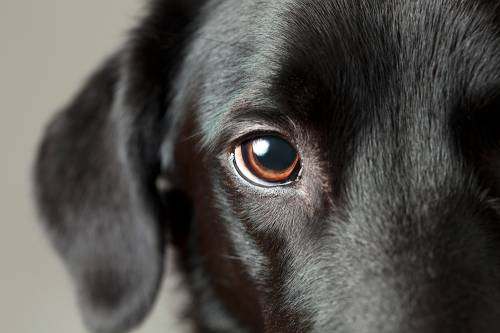On a good day, a dog’s breath doesn’t smell like a bouquet of roses to us. However, regular doggie breath indicates a dog is healthy! But what happens if a dog’s breath all of a sudden begins to smell foul?
Connect with a verified veterinarian in minutes. Licensed vets are available 24/7 to answer your questions. No need to worry about your furry family member.
Has your dog’s breath started to smell like barf? Are you worried this could be a sign your dog is sick? If so, then you’ve come to the right place. We understand it can be scary when your dog develops this type of symptom.
In this article, we’ll take a look at what can make your dog’s breath smell like barf and how you can help your dog. Let’s get started!
What Causes a Dog’s Breath to Smell Like Barf?
The most common reason for a dog’s breath to smell like barf is because the dog has been vomiting. There are times when a dog may have eaten something he shouldn’t, or he may have a stomach bug. It happens that dogs may once in a while feel off, just like we do. This may cause them to vomit.
However, if a dog is repeatedly vomiting, this is a symptom that may indicate kidney disease.
Kidney Disease in Dogs
Kidney disease is most common in older dogs, though it can also affect younger dogs. Kidney disease can develop for various reasons, including:
Damage to kidney filters (glomerular disease): can be caused by infections such as Lyme disease or cancer, which causes inflammation in the filters of the kidney. This inflammation can then damage the surrounding kidney tissue and lead to chronic kidney disease.
Infection: bacteria or fungal infections can cause kidney disease, which leads to inflammation of the kidney.
Kidney stones: can result from a chronic infection, be caused by other diseases, or even develop due to genetics. The stones can cause a blockage in the kidney, which leads to further inflammation and infection.
There are other conditions that can lead to kidney disease as well.

Review symptoms, medications & behavior to keep your pets healthy with a Vet Online in just minutes.
Ask a Vet Live NowSymptoms of Kidney Disease in Dogs
You may notice these symptoms if your dog has developed kidney disease:
- Loss of appetite
- Depression
- Vomiting
- Diarrhea
- Weight loss
- Foul breath
- Ulcers in the mouth
If you notice these symptoms in your dog, then call the vet immediately. Kidney problems that are not treated can lead to death.
Treatment of Kidney Disease in Dogs
The vet will perform a physical exam of your dog and do lab work that may include a BUN test (blood urea nitrogen), as well as urinalysis and other tests.
The vet will work to “restart” the kidneys through the use of IV fluids. This helps flush out the kidneys and stimulate the kidney’s cells to work once again. The vet will also work to control vomiting and diarrhea.
This treatment may work to get the kidneys functioning again; however, in some cases, the kidneys may fail again as soon as treatment stops. When the kidneys function well enough after treatment, the vet may prescribe a special diet, a potassium supplement, and more.
The good news is that some dogs will recover and live for months or years with damaged kidneys.
Connect with a verified veterinarian in minutes. Licensed vets are available 24/7 to answer your questions. No need to worry about your furry family member.

Julie
Julie is a graduate of the University of North Carolina, Wilmington, where she studied Animal science. Though contrary to the opinion of her parents she was meant to study pharmacy, but she was in love with animals especially cats. Julie currently works in an animal research institute (NGO) in California and loves spending quality time with her little cat. She has the passion for making research about animals, how they survive, their way of life among others and publishes it. Julie is also happily married with two kids.
Review symptoms, medications & behavior to keep your pets healthy with a Vet Online in just minutes.
Ask a Vet Live Now



